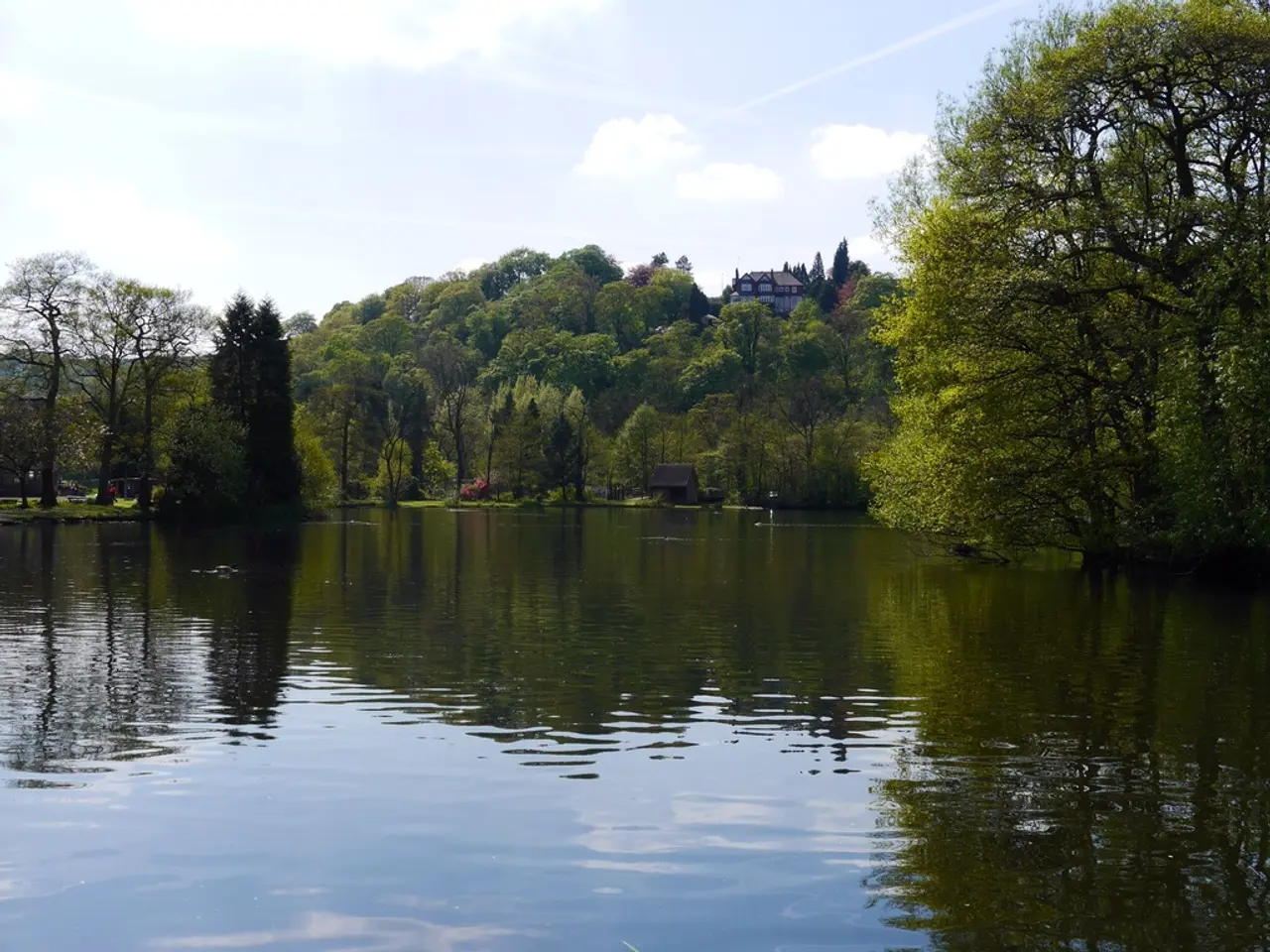Climate Adaptation Initial Meeting Reports: Impacts of Climate Change in Lüneburg District as Discussed by Attendees
In the picturesque district of Lüneburg, located in northern Germany, efforts are underway to adapt to the challenges posed by climate change. Paula Baurich, the climate adaptation manager of the district administration, has emphasised the urgency of adapting to new climatic conditions.
Forest areas, such as the Breetzer Berge, are particularly vulnerable. The expansion of wind turbines has led to soil compaction, reducing water infiltration and destabilising ecosystems. This, in turn, has impacted local flora, fauna, and human quality of life, prompting citizens to protest against forest destruction. Despite these protests, planned developments continue.
The region also faces increased risks of extreme rainfall and flooding. To address these risks, the district and state are enhancing flood protection measures, investing heavily in the strengthening of dikes and emergency personnel. The city of Lüneburg has developed a climate adaptation concept focusing on mitigating the impacts of heavy rainfall and heat. This includes promoting solar energy installations and sustainable gardening initiatives.
These combined actions aim to address vulnerability in both natural and urban areas, safeguarding both people and nature from climate change effects. The district is currently implementing climate adaptation measures, such as de-sealing schoolyard areas in secondary schools to allow water infiltration during rainy days.
Janna Hoveida, head of the climate protection, regional development, and economy department, states that the identified problems due to climate change in the district can now be addressed to keep damages and follow-up costs low. The climate adaptation concept aims to prevent further temperature rise and create solutions for pressing problems, as previously mentioned.
A workshop held on March 28th at the Ritterakademie brought together around sixty citizens and experts to identify areas where humans and nature are affected by climate change. Concrete examples of climate change impacts were collected during the workshop, including roads sinking due to drought, houses flooded by heavy rain, insects not dying due to mild winters, and brooks drying up due to drought.
An initial analysis shows that the average temperature in the district has increased by about 1.7 degrees since 1880. The climate adaptation concept identifies which measures have already been implemented and where further action is needed. The district of Lüneburg is collaborating with external service providers on this concept, and the results from the workshop will be integrated into its development.
More frequent heatwaves and fewer frost periods are noticeable due to the temperature increase. To counteract this, de-sealed schoolyards provide cooling through greenery on hot days as part of the climate adaptation measures. The lower nature conservation authority of the district is also renaturing rivers to create habitats for various species and reduce flood risk.
Information about the climate adaptation concept can be found on their official website (for brevity, the website is not linked here). The goal of the workshop was to identify areas where humans and nature are affected by climate change, and the district is taking significant steps to address these issues head-on.








